Information/Write-up
May 16, 2024: Barry Greenfield and this album are now featured in the current RecordCollector Magazine (June): https://recordcollectormag.com/issue/june-2024
Barry Greenfield and Robert Williston commemorate the 50th anniversary of Barry's overlooked debut album, a hidden gem in his musical journey. Barry, uninterested in fame or personal recognition, deliberately named his band 'Greenfield' rather than using his own name.
According to Barry, the album, titled "Blue Sky," holds a magical quality with contributions from world-class musicians such as Larry Carlton (lead guitar), Jim Gordon (drums), and Joe Osborn (bass). The stellar lineup also includes the acclaimed arranger Jimmie Haskell, known for his work with multiple Oscars and Grammys, and Rick Ruggieri, Elvis Presley's sound engineer, handled the engineering. The production was overseen by David Kershenbaum, who later became an executive at A&M Records, Elektra Records, and at Capitol Records. Remarkably, producing Barry's record altered the course of David's career, leading him to work with renowned artists like Duran Duran, Tracy Chapman, Joe Jackson, Laura Branigan, Cat Stevens, Bryan Adams, Supertramp, Elkie Brooks, Tori Amos, and more. David's achievements include 75 international gold and platinum albums, numerous Grammy awards, Golden Globes, and an Oscar nomination for Bryan Adams' "Everything I Do I Do It For You."
Despite its exceptional quality, "Blue Sky" never officially hit the shelves due to a dispute between Barry's manager, Fred Ahlert Jr. (Burt Bacharach and Hal David’s publisher) and the president of RCA over financial matters. Although copies of the album exist, it remains an unreleased masterpiece, forever etched in Barry Greenfield's musical history as perhaps the pinnacle of his creative expression.
Buffy Sainte-Marie recorded both "Free The Lady" and "Sweet America" and in 1976 named her 12th album after the song "Sweet America". Penned in 1970, "Sweet America" stands out as his most successful composition, having been covered by eight different artists. Originally addressing the Vietnam War, its lyrics, including the line "fall down on your knees and cry," could now be interpreted in the context of Donald Trump. The song's powerful songwriting was evident from the start; initially recorded with 10CC in England in 1969, it earned the distinction of being the BBC Record Of The Week in that same year. Notably, it claimed the #1 spot in England, played daily at quarter to eight on the BBC. The song shared this honor with Paul McCartney's "Another Day" preceding it as the pick of the week and the Carpenters' "Ticket to Ride" following it.
In 1973, a superior version of the song was re-recorded with Kerschenbaum. Upon its release, the single quickly entered the Billboard Charts, debuting at #54 in its first week in North America. However, the song faced an unexpected setback in its second week when it was banned by every radio station in America. This prohibition coincided with the return of John McCain and other American POWs from Hoa Lò (The Hanoi Hilton). RCA, in a state of panic, urgently flew Barry down to Los Angeles. Over two days, he engaged in extensive dialogue with program directors across the country, making 60 phone calls to clarify that the song was not intended to convey negativity; rather, it aimed to exude a sense of positivity and pride.
Similar to America's "A Horse With No Name" and Edward Bear's "Last Song," Barry Greenfield's "New York is Closed Tonight" stands as his signature piece, serving as the concluding number in every one of his performances. Originally composed with 13 verses, Barry carefully retained the most impactful three. Despite being written in 1969, the song remains timeless to Barry, much like Lightfoot's "Black Day in July." Although penned well before the events of 9/11, the song holds a poignant connection to that tragic day. Following the September 11 attacks on New York, media outlets such as CNN and Calgary TV played the song accompanied by visuals of the buildings collapsing into dust and ashes. Listening to the lyrics against this backdrop, the song eerily reflects the events of that fateful day. In 2003, Barry re-recorded it on a tour with Joey "Shithead" Keithley, appearing on his fourth album 'King of the Wolves' and in 2019 on his 12th album 'The Essentials' , Barry remixed the song, incorporating a 9/11 news broadcast, further enhancing its resonance and capturing the enduring impact of the tragic event.
Concluding the story, 'How Long Can You Give Love' and 'Honey, Honey, Honey Treat Me Nice' found placements in Australian films and television series for HBO and BBC. Even 50 years on, the future holds boundless possibilities for this extraordinary achievement.
-Robert Williston
Barry Greenfield: vocals, acoustic guitar
Larry Carlton: lead guitar
Dean Parks: guitar (tracks B1, B2, B3, B4)
Joe Osborn: bass
Larry Knechtel: keyboards (tracks A5, B5, B6)
Larry Muhoberac: keyboards (tracks A1, A2, A3, A4, B1, B2, B3, B4)
Jim Gordon: drums (tracks B1, B2, B3, B4)
Russ Kunkel: drums (tracks A1, A2, A3, A4, A5, B5, B6)
Gene Estes: percussion (tracks B1, B2, B3, B4)
Milt Holland: percussion (tracks A2, A5, B4, B5, B6)
Brooks Hunnicutt: backing vocals (track A4)
Daniel J. Moore: backing vocals (track A1)
Written by Barry Greenfield
Arranged by Jimmie Haskell
Produced by David M Kershenbaum
Engineered by Peter Abbott and Rick Ruggieri
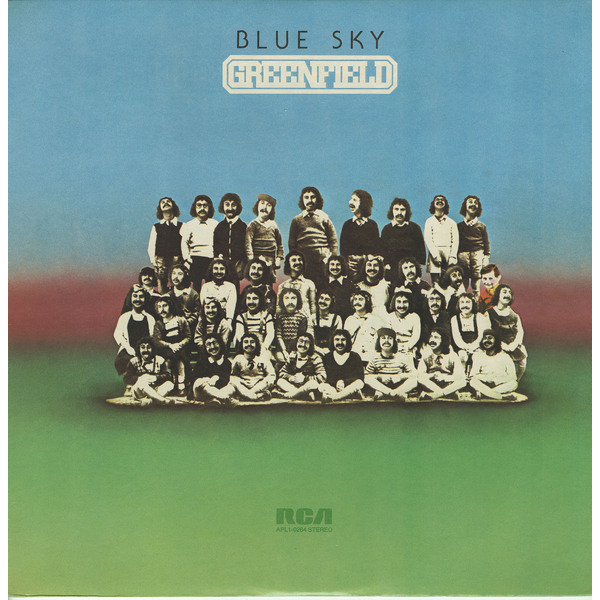
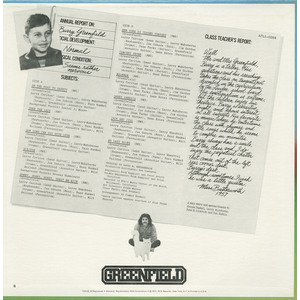
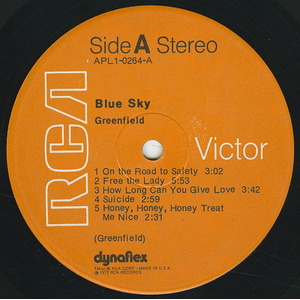
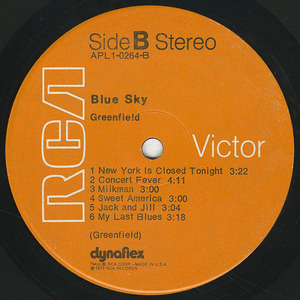
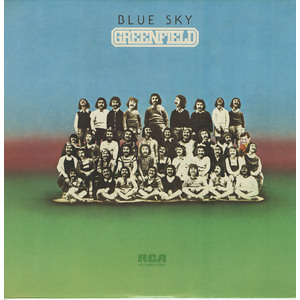
No Comments